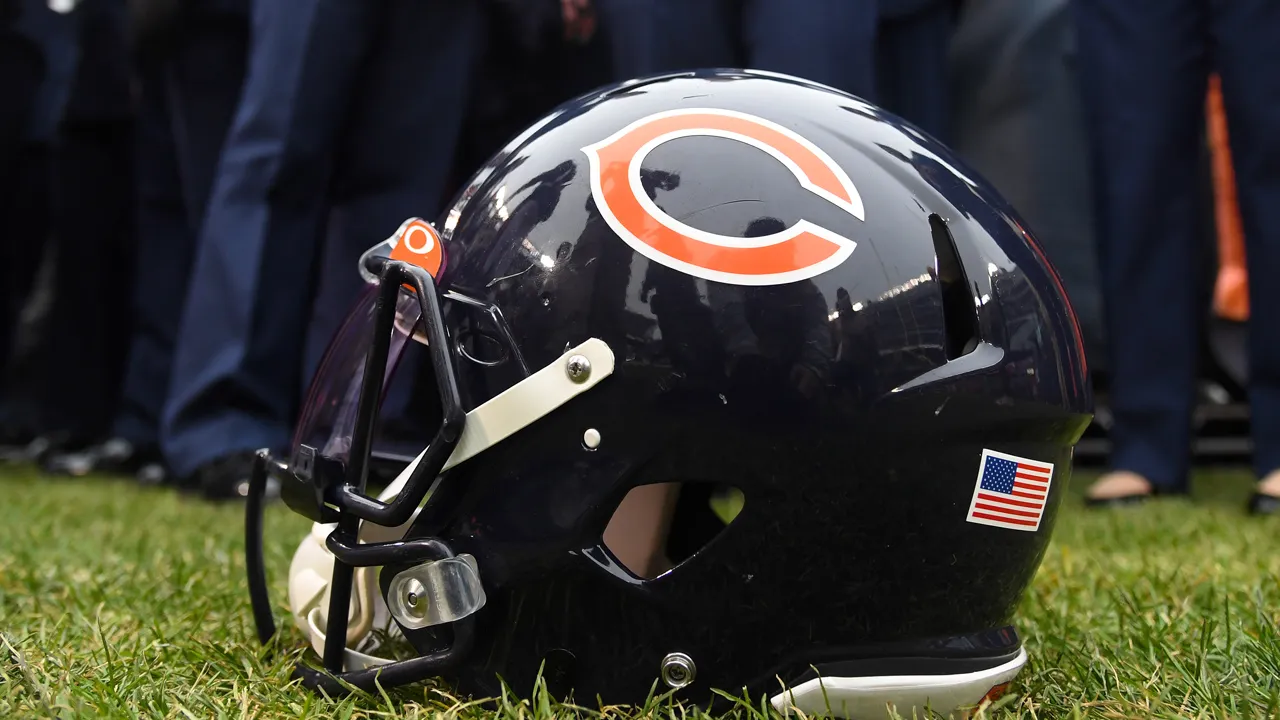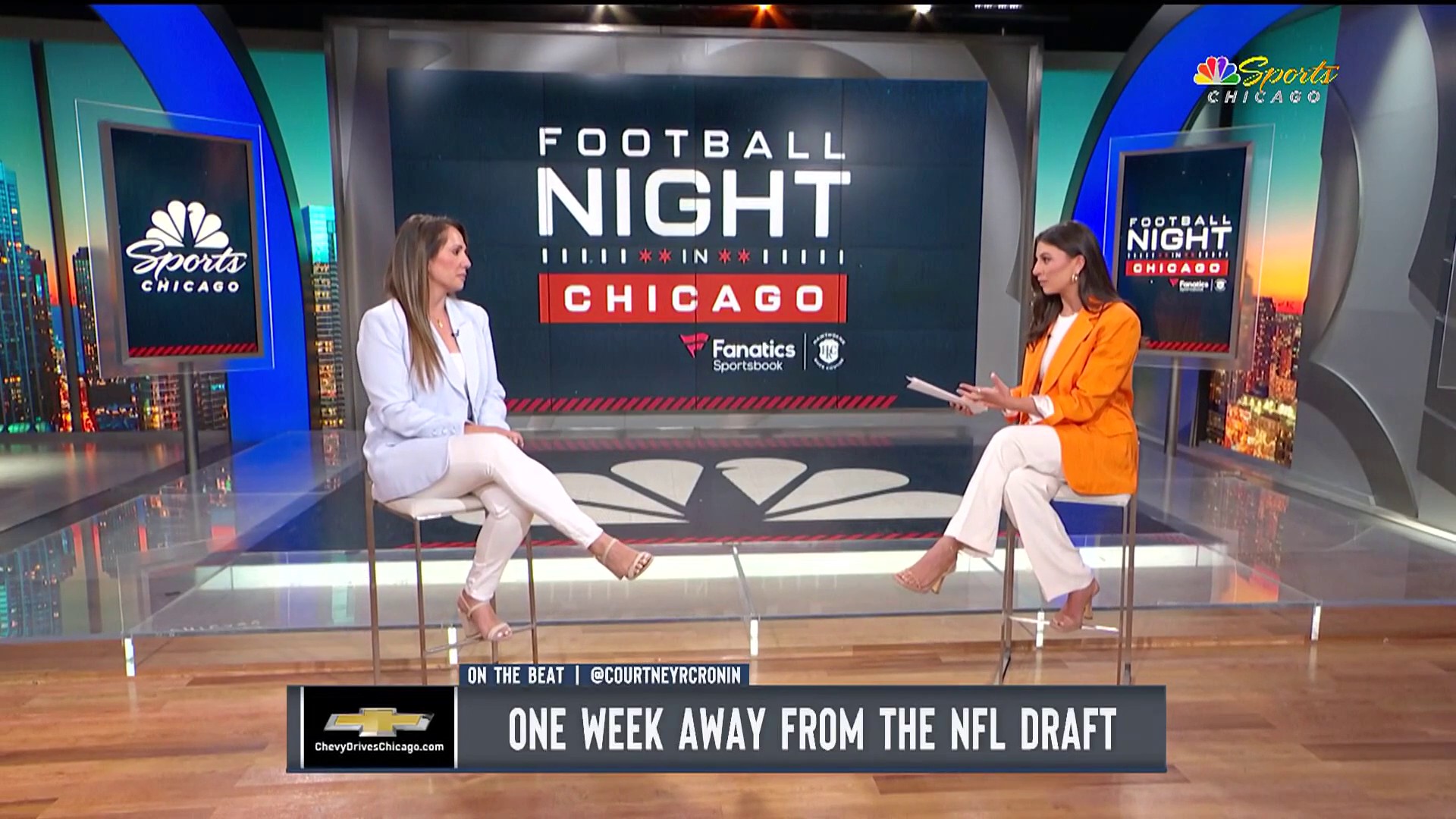When the Chicago Bears traded for Khalil Mack during Labor Day weekend of 2018, it signaled an all-in push for what was realistically no more than a three-year competitive window.
Three years was what was left on Mitchell Trubisky’s rookie contract, which meant by 2021, the Bears were either going to have to commit significant cap space to the quarterback position or start all over at the most important position in sports.
As it turned out, they did both, paying Nick Foles and Andy Dalton big money, while also starting over with Justin Fields.
Stay in the game with the latest updates on your beloved Chicago sports teams! Sign up here for our All Access Daily newsletter.
Meanwhile, the serious competitive window that was opened by Mack’s arrival has completely closed. And Mack’s season-ending foot surgery that was confirmed by head coach Matt Nagy Friday might as well have been Larry David slamming the door behind him.
“For weeks he’s been trying to get through it and this is — through him and our doctors and everybody else — this is a part of the game,” Nagy said. “You try to handle things the right way. I know he’s frustrated because he’s such a competitor, but this is the best thing for him and the best situation to be able to help him out and get it fixed.”
Nagy indicated the injury is more specific to a toe. The team sat Mack for the last two games with the hope that it would improve out of the bye week, but that strategy failed. Surgery was necessary.
And with that, for the third straight season, it doesn’t feel like the Bears were able to get the most out of Mack’s extreme talent.
NFL
Of course, all of this is just a reminder of how the Bears failed to get the quarterback position right during that window. The trade for Mack should never be considered a failure, but it still didn’t produce a championship because the Bears — once again — never put the offense together with the defense.
Maybe the Bears have their quarterback now, but the defense needs to be rebuilt. It’s not a total teardown with Roquan Smith and Jaylon Johnson still around, but continuing to push on with high-priced veterans over the age of 30 is a bad strategy. For his first five years in the general manager chair, Ryan Pace did not spend big on players over 30, but that changed dramatically in March 2020 when he gave big contracts to Robert Quinn, Danny Trevathan and Jimmy Graham in a desperate attempt to keep the competitive window open.
The fact that the spending spree came at the onset of a pandemic with an unknown salary cap squeeze on the horizon only hurt the Bears more. Quinn, Trevathan and Graham are currently due to count a combined $27.6 million against the cap in 2022, and Graham’s share ($4.66 million) is just dead money that was previously non-guaranteed before the Bears opted to keep him on the roster this season. Ouch.
A reset button must be pushed, either by the current GM or the next one, and don’t be surprised if Mack is part of that reset. When the Bears gave him a massive six-year, $141 million extension in 2018, they knew his production and reliability would probably not be the same in the back half of the contract. Mack is still a very good player when healthy, but he’s also 30 years old now and the Bears have pushed more and more of the cap hit down the road due to restructures, which means it will be very hard for Mack to ever provide relative value to his massive salary cap share. In 2022, his cap hit is projected to be $30 million.
The only good thing about Mack’s contract is that it is still tradeable. Moving Mack would reduce the Bears’ 2022 cap hit to $24 million (creating $6 million in space) and take him off the books in 2023 and 2024. Meanwhile, a team trading for Mack would only be acquiring his base salaries and roster bonuses, which are non-guaranteed. That means a team would still have to pay a relatively fair price of about $17.5 million for Mack’s services in 2022, but would not be on the hook for any money in 2023 and 2024 if it doesn't work out.
Again, Mack is still a very good, disruptive player who was on pace to reach double-digit sacks this season for the first time since 2018. But tough decisions are on the horizon — especially on the defensive side of the ball — and the Bears now have eight games to see what life without Khalil Mack is like.


